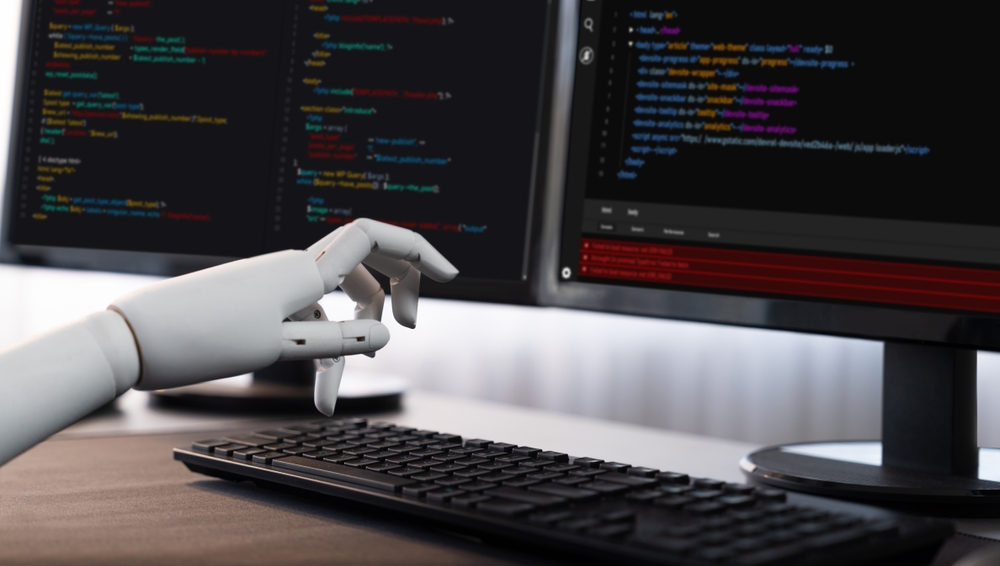
The Rise of Generative AI in Code Creation
Generative AI is rapidly transforming the software development landscape. No longer just a futuristic concept, it's becoming a practical tool for developers of all skill levels. These AI models, trained on vast datasets of code, can generate new code snippets, entire functions, and even complete applications, based on simple prompts and instructions. This is revolutionizing how software is built, offering the potential for increased efficiency, reduced development time, and enhanced innovation.
Understanding Generative AI and Code
At its core, generative AI uses machine learning algorithms to understand patterns and relationships within data. When applied to code, this means the AI learns the syntax, semantics, and best practices of various programming languages. By analyzing millions of lines of code, these models can then predict the most likely and effective code to achieve a specific goal. This capability allows developers to focus on higher-level tasks, such as designing the architecture and user experience, while the AI handles the more repetitive and mundane coding tasks.
How Generative AI is Used in Code Generation
Generative AI's ability to create code manifests in several ways, each offering unique benefits to developers:
Code Completion and Suggestion
One of the most common applications is code completion. As a developer types, the AI suggests relevant code snippets, function names, and even entire blocks of code. This significantly speeds up the coding process and reduces the likelihood of typos and syntax errors. Tools like GitHub Copilot and Tabnine leverage this capability to provide real-time assistance within popular IDEs.
Code Generation from Natural Language
Imagine describing the functionality you need in plain English, and the AI generates the corresponding code. This is becoming increasingly possible with advanced generative AI models. By understanding natural language prompts, the AI can translate your intentions into executable code, bridging the gap between human ideas and machine implementation. This is particularly useful for rapidly prototyping new features or automating repetitive tasks.
Automatic Bug Detection and Fixes
Generative AI can also assist in identifying and fixing bugs in existing code. By analyzing the code's structure and logic, the AI can detect potential errors and suggest corrective actions. Some advanced models can even automatically generate patches to fix identified bugs, saving developers valuable time and effort.
Test Case Generation
Writing comprehensive tests is crucial for ensuring the quality and reliability of software. Generative AI can automate the process of test case generation by creating a diverse set of tests that cover various scenarios and edge cases. This helps developers identify potential issues early in the development cycle and ensures that the software behaves as expected.
Benefits of Using Generative AI for Coding
The adoption of generative AI in coding offers a plethora of advantages for developers and organizations:
Increased Productivity
By automating repetitive tasks and providing intelligent code suggestions, generative AI significantly boosts developer productivity. Developers can focus on more complex problem-solving and creative aspects of their work, leading to faster development cycles and quicker time-to-market.
Reduced Development Costs
The increased efficiency and reduced development time translate directly into cost savings. By automating tasks like code generation, bug detection, and test case creation, generative AI helps organizations reduce their development expenses and allocate resources more effectively.
Improved Code Quality
Generative AI can help improve code quality by suggesting best practices, identifying potential errors, and automatically generating test cases. This leads to more robust, reliable, and maintainable software.
Democratization of Software Development
Generative AI can lower the barrier to entry for aspiring developers. By providing intelligent assistance and automating complex tasks, it empowers individuals with less experience to create functional software. This democratizes the software development process and fosters innovation.
Faster Prototyping and Experimentation
Generative AI enables developers to quickly prototype new ideas and experiment with different approaches. By generating code from natural language prompts, developers can rapidly test their concepts and iterate on their designs.
Challenges and Considerations
While generative AI offers significant benefits, it's important to be aware of the challenges and considerations associated with its adoption:
Code Quality and Accuracy
While generative AI models are trained on vast datasets of code, they are not perfect. The generated code may sometimes contain errors or inconsistencies. It's crucial for developers to carefully review and test the generated code to ensure its quality and accuracy.
Security Concerns
Generative AI models can be vulnerable to security exploits. Adversaries may attempt to inject malicious code into the training data or manipulate the model to generate vulnerable code. It's important to implement robust security measures to protect against these threats.
Bias and Fairness
Generative AI models can inherit biases from the data they are trained on. This can lead to the generation of code that is unfair or discriminatory. It's important to carefully evaluate the generated code for potential biases and take steps to mitigate them.
Dependence and Skill Erosion
Over-reliance on generative AI can potentially lead to skill erosion among developers. It's important for developers to maintain their core coding skills and use generative AI as a tool to augment their abilities, rather than replace them entirely.
Ethical Considerations
The use of generative AI raises ethical considerations related to copyright, intellectual property, and the potential displacement of human workers. It's important to address these ethical concerns and ensure that generative AI is used responsibly and ethically.
The Future of Generative AI in Coding
Generative AI is poised to play an increasingly important role in the future of software development. As AI models become more sophisticated and data sets continue to grow, we can expect to see even more powerful and versatile code generation tools. These tools will likely be integrated seamlessly into the development workflow, empowering developers to create more innovative and impactful software than ever before. We can also anticipate the rise of specialized AI models tailored to specific domains and programming languages, further enhancing the efficiency and effectiveness of code generation.

0 Comments